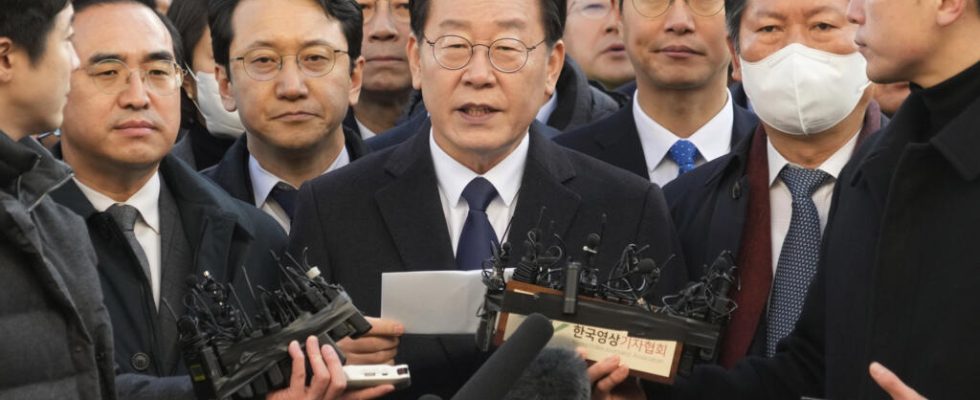In South Korea, opposition leader Lee Jae-myung was taken to hospital on Monday, September 18, after nineteen days of hunger strike. The leader of the Democratic Party, narrowly defeated in the last presidential election, demanded the resignation of all members of the conservative government, responsible – according to him – for bitter failures during this first year in power. This approach aimed to denounce the authoritarian practice of power led by the current president, Yoon Suk-yeol. An extreme decision which divides in South Korea while some accuse the opponent of wanting to escape justice. Accused in several corruption cases, an arrest warrant was issued against him on Monday.
2 mins
With our correspondent in Seoul, Nicolas Rocca
Almost unconscious, in front of a crowd of cameras and photographers, Lee Jae-myung finally left his National Assembly office on a stretcher. After nineteen days of eating only salt and liquid, he was taken to hospital on Monday.
Since August 31, the opposition leader has launched a hunger strike: “ I was unable to prevent the regime’s incompetence and headlong flight. I am outraged as a common man who sees democracy and people’s livelihoods collapsing under tyranny. I will prevent the destruction of democracy with the determination of my own life. As a last resort, I am starting an unlimited fast today. »
Arrest warrant
Bad economic management, threats to freedom of the press, the right to strike and inability to oppose the dumping of wastewater from the Fukushima reactors, these are his criticisms of the conservative government. But some believe that they also hijack this historic means of struggle in South Korea, notably used by opponents of the dictatorship in the 1980s.
The same day he left for hospital, a new arrest warrant was requested against him. Accused of corruption, transfers of funds to North Korea or fraudulent award of public contracts, he cannot be indicted without the National Assembly, controlled by his party, lifting his parliamentary immunity. An additional challenge for crucial legislative elections in April 2024.
Read alsoSouth Korea: press freedom under threat
